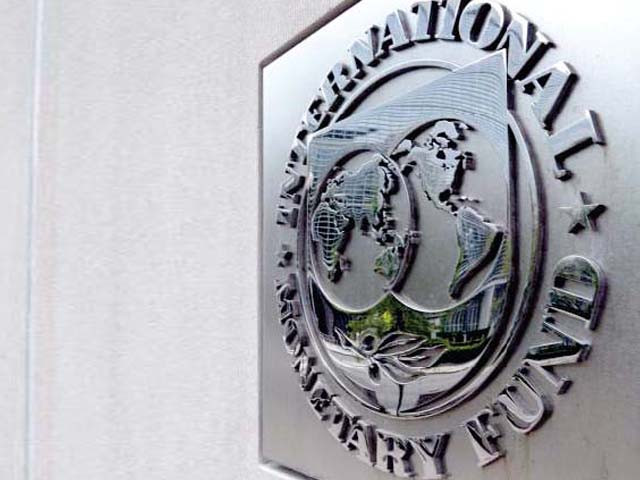Tough measures: IMF suggests increase in sales tax rate to trim deficit
Says fiscal reforms can lessen Pakistan’s dependence on bank borrowing.

The International Monetary Fund (IMF) has asked Pakistan to withdraw untargeted subsidies, raise the sales tax rate and reintroduce income surcharge and special excise duty after finding out that the country has understated its expenditures and overstated receipts.
The IMF, in a detailed report on Pakistan’s economy, revealed that the country has understated expenditures by Rs317 billion and overstated revenues by Rs215 billion to hide a deficit of Rs532 billion. The report was compiled after a review of the economy under Article-IV.
Against total budget outlay of Rs3,753 billion, approved by parliament, the IMF has put expenditures at more than Rs4,070 billion, with a gap of Rs317 billion. Similarly, receipts (both tax and non-tax) have been estimated at Rs2,878 billion while IMF assessment puts them at Rs2,663 billion.
The IMF assessments are close to what independent economists have been saying since the beginning of the current fiscal year in July 2011. Despite attempts, finance ministry officials were not available for comments.
The IMF has worked out budget deficit at Rs1,443 billion against government’s estimate of Rs985 billion. It said if the country implemented fiscal reforms, its dependency on the banking sector and the central bank for financing would lessen.
Risky path
“Pakistan’s policy mix was leading the economy down to an unsustainable and risky path,” observed the IMF.
In order to correct the imbalance, the IMF has proposed a “reforms package”. This promises to create a Rs250 billion fiscal space, which will lead to increase in national output by 0.4 per cent to 3.8 per cent and a slight fall in unemployment to 7.5 per cent.
“If the authorities implement fiscal and monetary reforms, the fiscal deficit will come down to 5.7 per cent of gross domestic product (GDP) against projection of 6.9 per cent.” Furthermore, the implementation of reforms will require much less bank financing for fiscal deficit and less restrictions on credit off-take by the private sector.
These policies will also produce higher growth, lower unemployment and inflation. The reforms promise significant reduction in the country’s debt burden.
It said the country’s total debt would come down to 60 per cent of GDP from 61.7 per cent, a net reduction of Rs292 billion.
On the revenue side, without giving the exact increase, the IMF has asked Pakistan to increase the sales tax rate from existing 16 per cent. Moreover, the country should reintroduce two per cent special excise duty and income surcharge levied after 2010 floods. These two measures were withdrawn in this year’s budget. This will help raise FBR revenues to Rs1,934 billion, said the IMF. However, the government expects to achieve the Rs1,952 billion target without taking any new revenue-generating steps.
Take back subsidies
On the expenditure side, the IMF said, Pakistan ought to withdraw wheat and fertiliser subsidies and abolish untargeted electricity subsidies. Against the government claim of Rs190 billion subsidies in the current fiscal year, the IMF expects these to reach Rs371 billion. If proposed reforms were undertaken, Pakistan could save Rs100 billion in subsidies, it added.
However, both the finance ministry and the IMF have unanimity of views in at least one aspect that there is no political support for reforming the ailing economy.
Published in The Express Tribune, February 9th, 2012.
-----------------------------------------------------------------------------
[poll id="652"]


















COMMENTS
Comments are moderated and generally will be posted if they are on-topic and not abusive.
For more information, please see our Comments FAQ